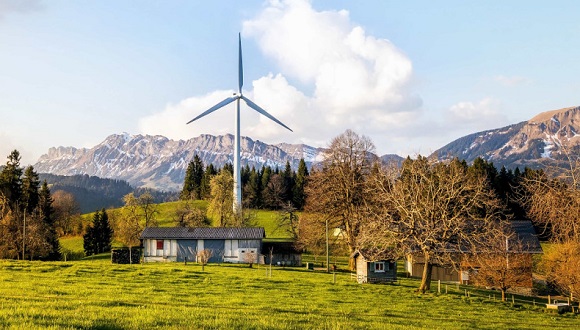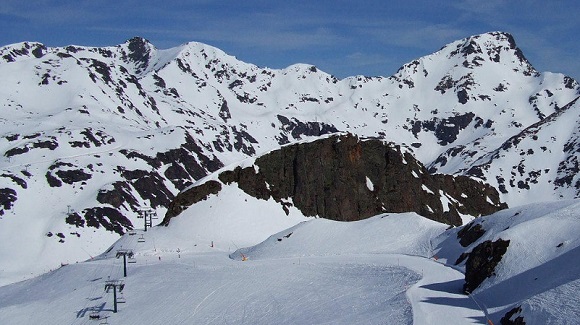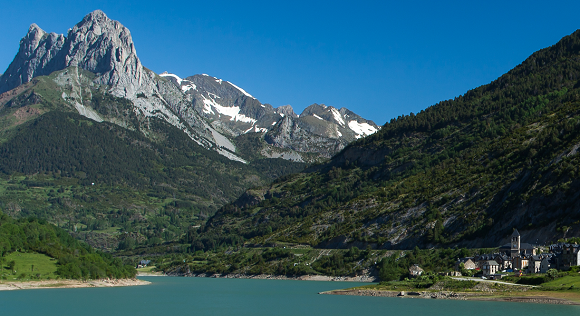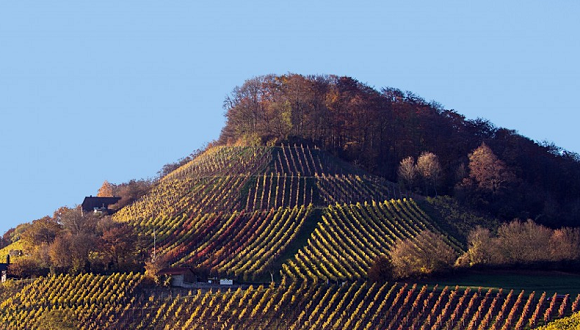CREAF presents the Network for European Mountain Research (NEMOR)
Coordinated by CREAF and comprising more than 50 European organizations, NEMOR has produced a document seeking the European Commission's recognition of mountains as a unique setting for activities such as testing related to the effects of climate change, reversing depopulation and promoting new circular economy projects.

After those associated with Isaac Newton, the Beatles and Steve Jobs, could the next game-changing apple be mountain-grown? A fine, delicious apple cultivated in seven mountainous regions of Catalonia for the last five years, thanks to research projects that have helped identify suitable varieties and farming methods? An apple symbolic of a brighter future for those regions' inhabitants?.
After those associated with Isaac Newton, the Beatles and Steve Jobs, could the next game-changing apple be mountain-grown?
The revolution that marks the 21st century could take place in mountain areas, especially if the Network for European Mountain Research (NEMOR) has anything to do with it. An international movement for the promotion and development of such areas, NEMOR was presented in the Colet Museum in Barcelona on May 30th. Coordinated by CREAF, through Bernat Claramunt, the network has around 50 member organizations linked with mountain research and management from all over Europe. They have recently brought the idea they share, that mountains are an ideal laboratory and a vital natural environment for tackling the 21st century's socioeconomic and environmental challenges, to the attention of the institutions of the European Union

NEMOR's founders believe that studying Europe's mountains and making them more resistant to climate change and human activity will represent a turning point in the continent's history. “From an environmental perspective, we have to bear in mind that 80% of Europe's rainwater originates in mountains, and that 60% of the species found in mountain habitats could disappear in the next 50 years”, says Bernat Claramunt, a CREAF researcher and lecturer at the Autonomous University of Barcelona.
The 50 member organizations linked with mountain research and management have recently brought the idea they share, that mountains are an ideal laboratory and a vital natural environment for tackling the 21st century's socioeconomic and environmental challenges.
NEMOR is aiming to coordinate research encompassing environmental, social and economic aspects, the three dimensions of the UN's Sustainable Development Goals. Given that mountains make up a third of European territory, are home to a fifth of Europe's population and receive 17% of all the continent's tourism, the impact of placing them at the heart of research and innovation projects could be huge.

Protecting water reserves and biodiversity
Along with the foehn effect, which causes the formation of clouds and precipitation above mountaintops, reserves of snow and ice are crucial to keeping Europe's population supplied with water throughout the year. This ecosystem service is in jeopardy, however, due to the major effect climate change is having on mountain areas, with temperatures having risen twice as fast as in lowland areas over the last century, for example. There has been a gradual decline in the number of days on which snow falls over the same period (ignoring exceptional years, such as 2018), and the average surface area of the glaciers in the Pyrenees and the Alps has decreased by 80% and 40% respectively since 1850. NEMOR intends to study ways of protecting and managing watercourses and their tributaries in a balanced manner. “We know we have to develop strategies to satisfy the needs of both mountain-dwelling communities and communities in lowland regions that consume this precious resource”, states Claramunt.
During the last century, temperatures having risen twice as fast as in lowland, there has been a gradual decline in the number of days on which snow falls, and glaciers in the Pyrenees has decreased their surface area by 80% since 1850.
As well as playing a key role where water is concerned, mountains are the source of 80% of the renewable energy Europe uses, a haven for forest species fleeing the effects of climate change, and, in no uncertain terms, a reservoir of biodiversity. Around 40% of the surface of Europe's mountains is covered by woodland, so research and forest planning geared to preventing fires in the wild could be very important. “It will be essential to study even the most inaccessible and mature forests, and to come up with ways of making the use of forest land compatible with conservation”, says Claramunt.

Making life in mountain areas more appealing
NEMOR has pledged to carry out inclusive research that will take all the people who live and work in mountain areas into account. In that respect, it will place particular emphasis on technological innovations that could be put to use in such areas, in which medical services are generally not readily accessible (diagnostic sensors, telemedicine and eHealth technology all have potential in this field) and the education options available are much more limited.
Mountain areas are an ideal setting for developing new, more cooperative and circular models of society, and for fostering adaptive strategies to reverse depopulation and stop land being abandoned.
Additionally, NEMOR wants to promote projects related to sustainable tourism. Inhabitants of lowland areas are increasingly keen to visit locations that offer stimulating activities while retaining the wild, pristine essence and remoteness of mountain areas. Striking a balance all year round will be one of the challenges facing the network's members.
Lastly, NEMOR's researchers firmly believe that mountain areas are an ideal setting for developing new, more cooperative and circular models of society, and for fostering adaptive strategies to reverse depopulation and stop land being abandoned.

Establishing a network of green valleys based on a circular economy
NEMOR is looking to improve connections between mountain and lowland communities, identify new models of economic development, and test specialized ICT products that could work in remote, poorly linked locations that are difficult to access, and where problems or challenges specific to mountain areas exist. More connections and joint projects would make it possible to adopt long-term approaches and establish circular economy systems based on local biodiversity and the sustainable use of resources. “For instance”, explains Claramunt, “we're talking about encouraging the creation of a European network of green valleys that produce local, quality agri-food products through the use of pastureland or organic farming”.
One such product is the mountain-grown apple, cultivated at altitudes of over 700 metres by local families, which has resulted in a cooperative being established, four varieties of apple developed and three trademarks promoted.







